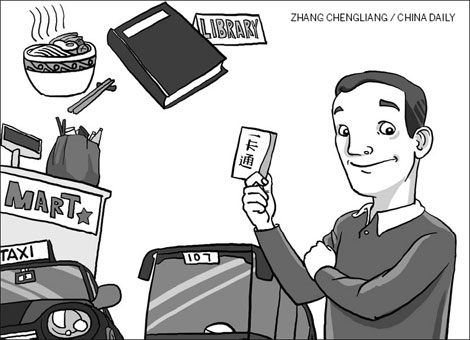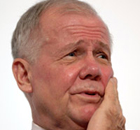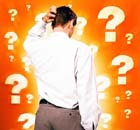Comment
Top transport a wild ride
By Freddie Cheah (China Daily)
Updated: 2010-05-13 08:02
 |
Large Medium Small |

Last month, Beijing was given a huge pat on the back by the Chinese Academy of Social Sciences - ranking the city as having the best transport - in its annual report on urban competitiveness. Beijing beat Shanghai and Hong Kong to win the title.
This intrigued me. I wondered how the rankings were done, and what constituted "transport" where the authors were concerned? Was it just the infrastructure, or did they include users of the system?
If it were just the infrastructure, I would tend to agree. I have not been to Shanghai but I've experienced Hong Kong's system - as well as those in Singapore, Bangkok, Kuala Lumpur and my home city of Sydney. Against these cities, Beijing's infrastructure is certainly as good, if not better. But throw in the users - commuters - and Beijing would drop down the list quick smart.

When I first arrived in Beijing just more than a month ago, I was told the buses and subway system were very efficient and very inexpensive. Its electronic smart-card yikatong, or "one card pass", simplifies boarding as all the holder has to do is to tap an electronic reader at stations or on buses.
Another advantage, as any Beijinger knows, is that the card can be used not only for subways and buses, but in some taxis and shops. And I've heard there are plans to expand its usage.
The pass has compatriates in many other world-class cities such as Singapore (called the EZ-link) and Hong Kong (Octopus), but I'm ashamed to say, not in Sydney - supposedly one of the world's top cities. Instead, commuters in Australia's largest city using a train and a bus for one journey would have to fork out cold, hard cash for two tickets - one at the railway station and the other on the bus. True, the New South Wales government is now promising to introduce a smart travel card - but Australians won't see it for at least another two years.
Indeed, The Sydney Morning Herald reported last month that the card will be delivered to Sydney 15 years after it was promised. This is in stark contrast to the yikatong, which arrived in 2003, EZ-link in 2000 and Octopus in 1997.
Moreover, many retailers in Singapore and Hong Kong have jumped on the bandwagon and are accepting their respective cards for payments. In Sydney, a bus driver or storekeeper would laugh at you if you tried to present your train ticket to board the bus.
But I digress. Not only is Beijing's pass easy to use, but it's also inexpensive. A subway ride, no matter how far, costs only 2 yuan while most bus trips cost a mere 0.4 yuan.
The subway and bus service is regular, and in my month of taking public transport in Beijing - mainly buses - I haven't had to wait more than 15 minutes for one to arrive.
In addition, another thing surprised me about the buses: the stop announcements, both in Mandarin and English, with some even displaying the pinyin spelling for the destination.
TV screens in most buses and subway carriages also show local programs, giving commuters the opportunity to while away their time as they head for work or home.
So with such an efficient system, it is very sad Beijing's transport experience is severely let down by the very thing it was been designed for - the people.
Beijingers, by and large, don't appear to know how to queue, how to be patient and how to practice common courtesy in public.
On many occasions, I've been at the head of the "queue" at a bus stop (Beijingers really don't queue. They just wait as close as possible to where the bus would stop). The bus arrives, the driver opens the door and before I can even move, two or three people whiz in from all sides, or even shove me aside, to board.
On subways, it's worse. If you wait just a second after the doors open, you'd be literally pushed inside - despite the fact that a dozen people are still trying to get off.
Some bus drivers also think they should drive like a Formula 1 driver - or perhaps more like a has-been F1 driver. They race from one stop to another, accelerating hard and even worse, braking hard, sending passengers lunging. They don't think that perhaps their passengers' safety might be jeopardized by the constant and sudden changes in direction.
This is exacerbated by drivers leaning on the horn constantly to get rid of any impediment to their forward progress.
Trouble is, when the car or van in front doesn't move, the drivers are forced to brake suddenly or turn sharply - sending passengers grabbing for the nearest support - be it a pole or another human.
While Sydney may not have a transport infrastructure to be proud of, at least its commuters queue properly and are generally courteous. If Beijingers were to take a cue from that, nobody - least of all me - would be surprised if the city won the academy's top transport award again.







